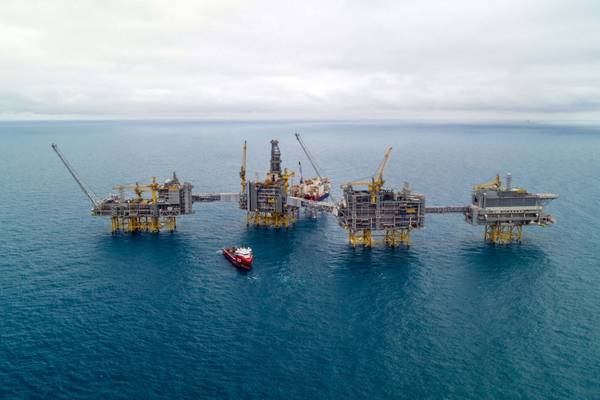
Russia's flagship Urals oil grade is facing growing competition in its European heartlands amid rising supplies of Norway's Johan Sverdrup (JS Blend) crude and reduced opportunities for the Norwegian grade in Asian markets, traders said.
Urals and JS Blend, both medium sour crudes and available from European ports, are similar in quality and logistical requirements, and target the same refiners in Europe.
Since the launch of the Johan Sverdrup oil field in 2019, JS Blend has been largely purchased by Asian refiners and so has been less available for European buyers.
But this year, the premium of Europe's Brent oil price benchmark to Asia's Dubai has increased, making it harder to supply large volumes of Brent-linked oil grades to Asia at a profit. That has stoked competition between Urals and JS Blend in Europe. <DUB-EFS-1M>
Traditional buyers of Urals such as Finland, Poland and Turkey have ramped up JS Blend imports this year, according to traders and Refinitiv data.
"Urals is something European refiners are used to, but JS Blend has been here since 2019, so many have tried it and liked it as it has less sulphur", said a source with a trading firm which operates in the European market.
Another trader said that while Urals oil supplies are higher than those of JS Blend, meaning it is viewed as more reliable, Norway has been increasing output of its grade and many European refiners are now able to purchase it on a regular basis.
This year, output from the Johan Sverdrup field has reached 535,000 barrels per day (bpd) and is expected to reach as much as 755,000 bpd late in 2022. All volumes of the grade are exported by sea.
In comparison, Russia has been loading 1.1-1.3 million bpd of Urals on average from its Baltic sea ports over the last two years.
"As Norway is ramping up JS Blend loadings, the affect on Urals market is more visible", a trader with an international trading house said.
JS Blend has become a significant factor influencing Urals prices, three traders said.
According to Refinitiv Eikon data, Urals' discount to dated Brent in northwest Europe has widened to $1.91 per barrel on average this year from $0.59 per barrel on average in 2020.
(Reporting by Olga Yagova and Gleb Gorodyankin Editing by Mark Potter)